As a mental health clinician who has supported many trauma survivors, especially those who identify as Highly Sensitive Persons (HSPs), I’ve seen the heartbreaking patterns that emerge when sensitivity intersects with abuse.
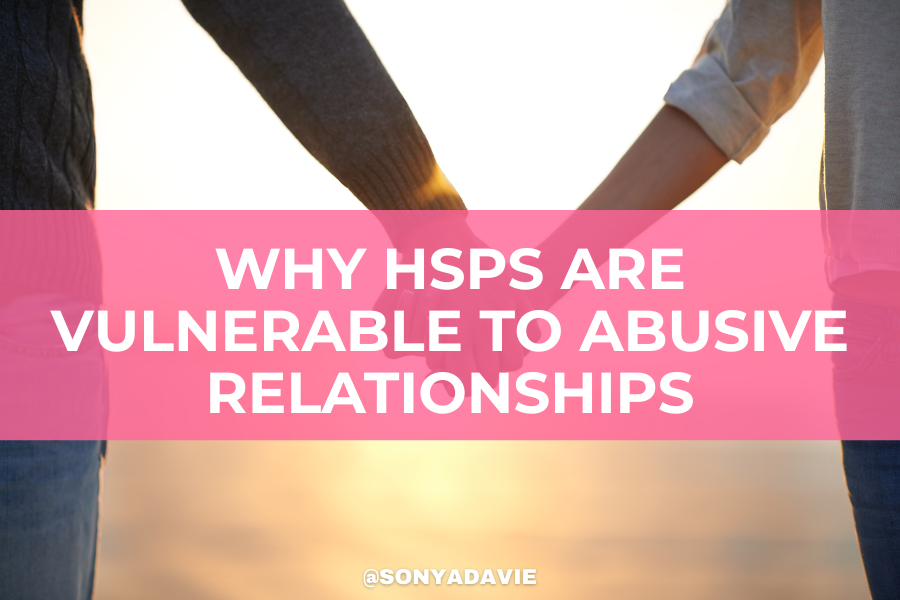
Many of my clients have histories of domestic violence, emotional neglect, or trauma. They often share stories of ignoring red flags, rationalizing harmful behavior, or staying in relationships that depleted them, sometimes at great personal and physical cost.
This post explores why HSPs can be more vulnerable to abusive dynamics (including narcissistic abuse) and what steps can support their healing and protection.
The HSP Profile
The term Highly Sensitive Person was introduced by Dr. Elaine Aron to describe individuals with a trait called sensory processing sensitivity. Roughly 15–20% of the population falls into this category.
HSPs process information deeply, feel emotions intensely, and are highly attuned to subtle shifts in their environment.
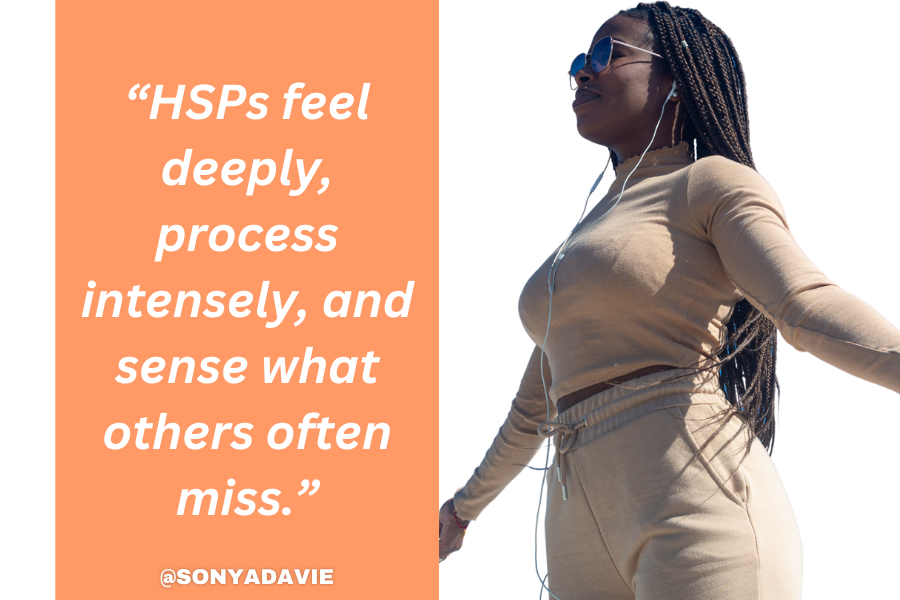
This depth of feeling and empathy often allows them to connect with others on a profound level, but it can also expose them to emotional harm when boundaries blur.
Dr. Aron beautifully captures this in her book, The Highly Sensitive Person in Love:
“We fall in love harder and fear it more because we are drawn to the depth and complexity of the emotions we are going to unleash.”
Her research and her documentary Sensitive and in Love highlight both the beauty and the risk of this sensitivity in relationships, especially when emotional attunement is not reciprocated or respected.
📖 Grab the book:
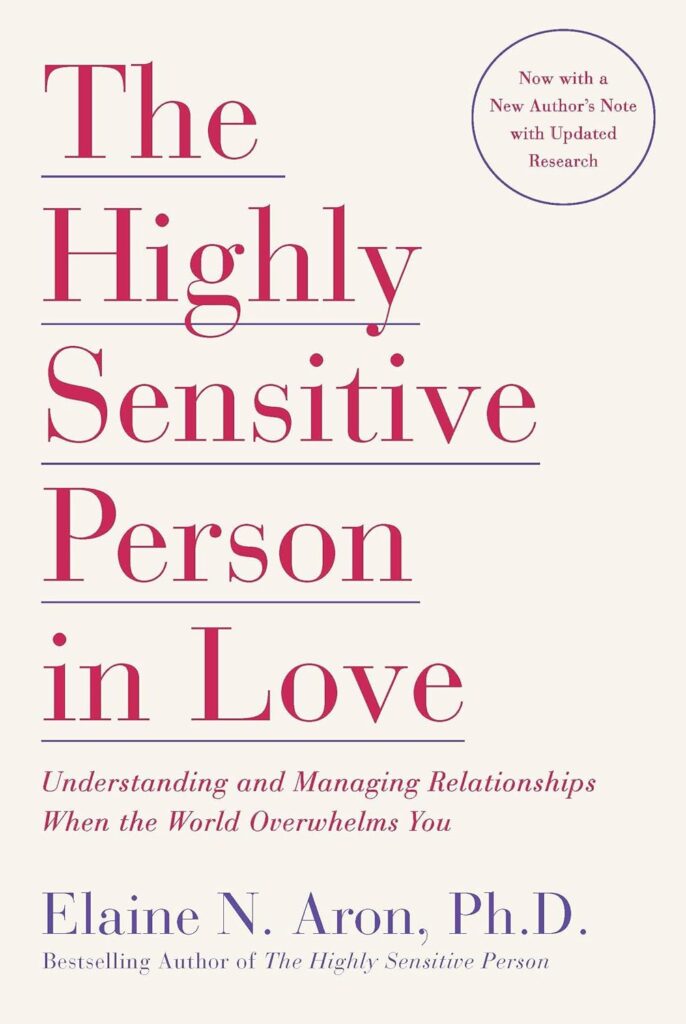
Why HSPs Miss Red Flags?
Two Major Drivers: Trauma Histories and Red Flag Blindness
Many HSPs crave deep, soulful connection. They listen, empathize, and often feel responsible for maintaining emotional harmony. Yet these same strengths can become vulnerabilities when paired with someone manipulative or emotionally unavailable.
In my clinical work, I’ve noticed a recurring pattern: HSPs often override their intuition.
This happens for many reasons, most commonly unresolved trauma or childhood emotional neglect. When early caregivers were inconsistent or dismissive, it can teach someone to question their instincts and tolerate emotional discomfort longer than they should.
As trauma expert Dr. Judith Herman writes in Trauma and Recovery:
“Complex trauma produces complex adults.”
That complexity often includes confusion around safety, trust, and boundaries, making it harder to recognize when a relationship is harmful.
Narcissists and HSPs: A Toxic Match
The pairing of an HSP with a narcissistic partner can be particularly dangerous. Narcissists tend to start relationships with intense flattery and idealization, which speaks directly to an HSP’s longing for depth and emotional closeness.
But once control is established, the tone changes, affection turns to criticism, empathy to manipulation. Narcissists may gaslight, withdraw, or use subtle put-downs that leave the HSP questioning their reality. Because HSPs are naturally introspective, they often internalize blame and try harder to “fix” things.
This push-pull dynamic, a cycle of affection and cruelty, creates trauma bonds that can feel impossible to break.
HSPs sense something is off, but may silence their intuition to preserve connection.
Common Red Flags HSPs Overlook
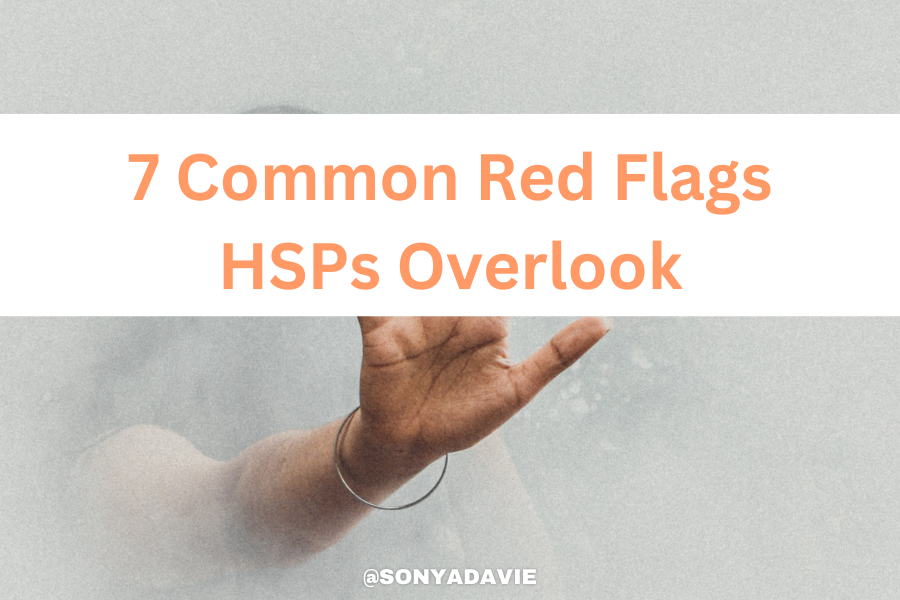
- Excessive early idealization
- Rapid emotional or physical intimacy
- Subtle belittling or sarcastic “jokes”
- Dismissal of emotional needs
- Controlling behavior disguised as care
- Inconsistencies between words and actions
- Isolation from friends and support systems
The Cost of Ignoring Intuition
Over time, the cost of ignoring red flags can be severe.
Many HSPs I have worked with suffered not only emotional damage but also physical harm. Their sensitivity, in these contexts, becomes a liability rather than a strength… not due to the trait itself, but because of how it is exploited by others.
Verbal Abuse Is Abuse
One of the most commonly downplayed forms of harm is verbal abuse.
Too many people I have worked with did not realize that verbal insults, demeaning language, constant criticism, and yelling are not just signs of poor communication; they are forms of abuse.
It’s not “just how someone talks”… it’s a deliberate attempt to erode self-worth and maintain power.
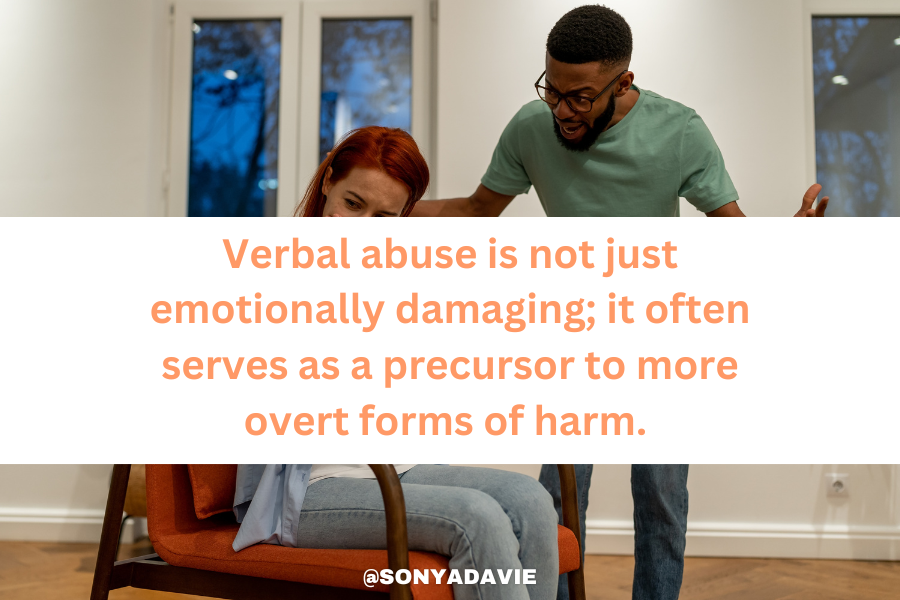
If a person can verbally abuse you, they have the potential to physically abuse you. Many survivors I’ve worked with have experienced a progression from verbal assaults to physical violence, sometimes gradually, sometimes suddenly. If someone can use words to tear you down, they may later cross other boundaries.
For HSPs who feel tone, tension, and emotional shifts deeply, the effects can be devastating. It erodes self-esteem, damages trust, and creates an environment of fear and instability.
Recognizing verbal abuse for what it is can be the first step toward breaking free. Everyone deserves to be spoken to with respect and kindness. Emotional safety is not optional; it’s a right.
5 Steps Toward Healing and Protection
1. Psychoeducation
Understanding your HSP trait and how it interacts with trauma is foundational.
For women, consider joining Feel and Flourish, a supportive community I created for highly sensitive women to heal, grow, and thrive together.
2. Trauma-Informed Therapy
Therapies like EMDR, Internal Family Systems (IFS), or somatic approaches can help rebuild trust in yourself and your instincts.
3. Boundary Development
Learning to set boundaries (without guilt) is essential for protecting your sensitivity and energy.
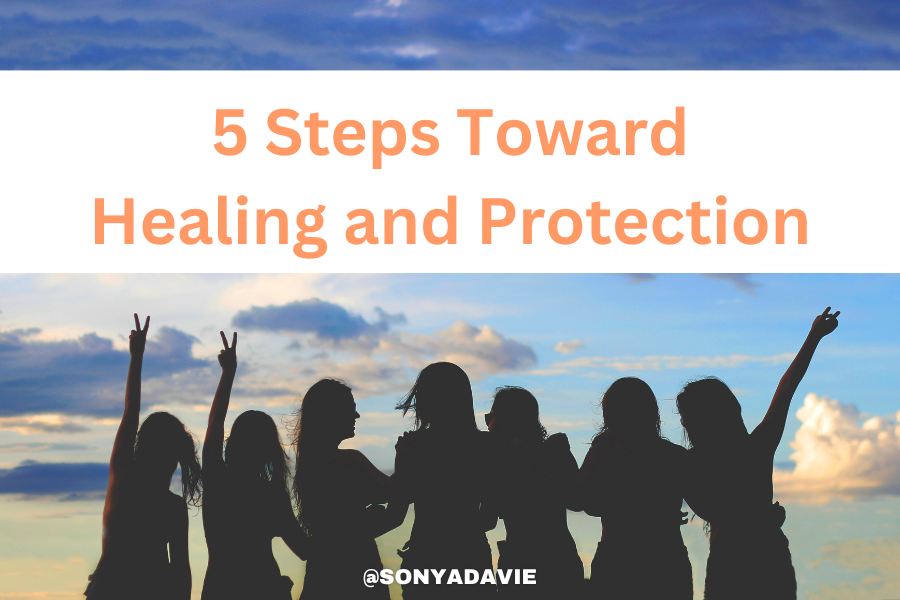
4. Support Networks
Safe, validating relationships are key. Peer support, group therapy, and trusted friends help restore perspective and strength.
5. Slow Relational Pacing
Take your time when forming new connections. Consistency over intensity is the best predictor of emotional safety.
Before I close, I want to remind you that being highly sensitive is not a weakness, it’s a gift.
Your depth, intuition, and empathy are incredible strengths. But to protect that gift, it’s essential to cultivate discernment and self-trust.
As therapists, advocates, and allies, our role is to help Highly Sensitive Persons (HSPs) honor their sensitivity while ensuring they never compromise their safety.
This post is not a substitute for therapy or professional legal support. If you or someone you know is in danger, please reach out to a trusted domestic violence hotline or crisis center. You are not alone, and help is available. 💛
+ show Comments
- Hide Comments
add a comment